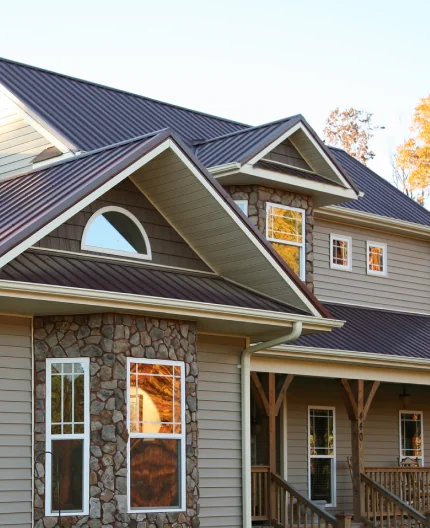16 Types of Roofing Shingles & Their Differences
Published on Wednesday June 26, 2024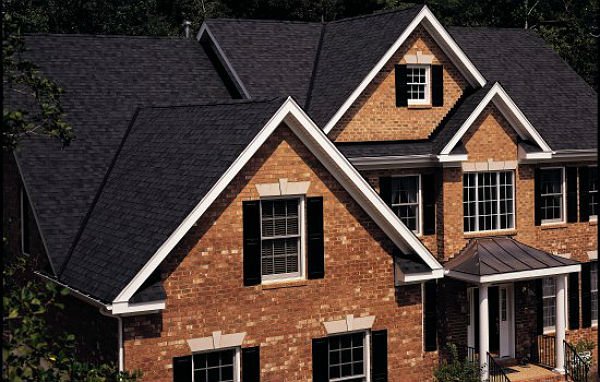
When it comes time to replace your roof, figuring out which type of shingle is best for your home can feel overwhelming. There are so many different types of shingles to choose from, all with unique characteristics. With so many choices, how do you know which one to pick?
To help you decide, we have provided this comprehensive list of the 16 types of roofing shingles available. We’ll help you decide between materials–wood, asphalt, metal, etc –and style to decide what best suits your home’s needs and budget.
1. 3-Tab Shingles
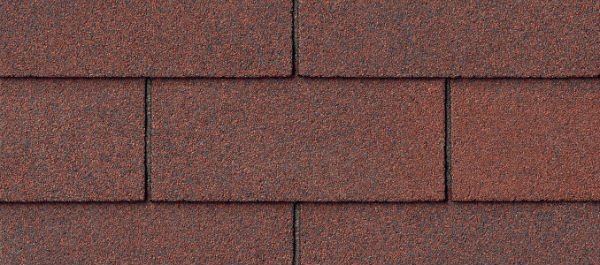
3-tab shingles, a commonly used type of roofing material, are made of asphalt and are recognized for their smooth, flat, and consistent appearance. These shingles are designed to withstand various weather conditions and typically have a lifespan of approximately 20 years.
Pros: Affordable and easy to install.
Cons: Not many customizable choices.
2. Dimensional Shingles
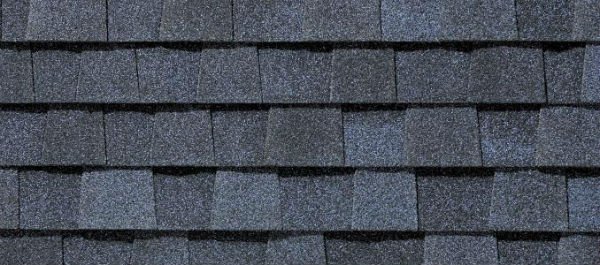
Dimensional shingles, also known as architectural shingles, are also crafted from asphalt and have a thicker, multi-layered construction compared to traditional 3-tab shingles. This design offers enhanced durability and can prolong the lifespan of the roof to up to 30 years, making it a popular choice for homeowners seeking long-lasting roofing solutions.
Pros: Durable and long-lasting.
Cons: Because they’re heavier than other asphalt shingles, you must have a durable roof to support their weight.
3. Luxury Shingles
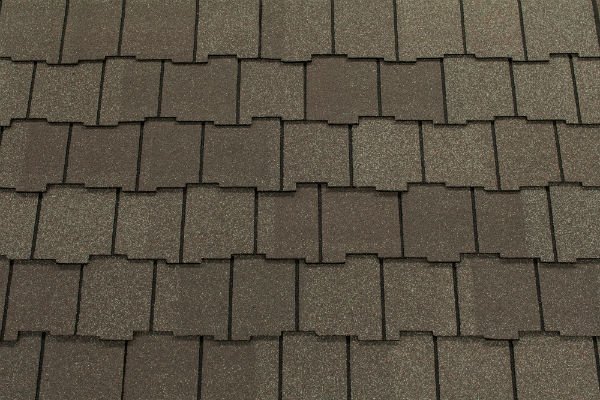
Luxury shingles are premium asphalt shingles that are crafted to replicate the appearance of natural materials such as slate or cedar. They’re known for their exceptional durability, with a potential lifespan of up to 50 years. These shingles offer a luxurious aesthetic and are an excellent choice for homeowners seeking long-lasting, high-quality roofing materials.
Pros: Attractive and durable.
Cons: Can be very expensive. They’re also very heavy and require a reinforced roof.
4. Aluminum Shingles
Aluminum shingles are an excellent choice for those seeking a durable, lightweight roofing material. These metal shingles are highly resistant to corrosion, making them ideal for various weather conditions. With proper maintenance, aluminum shingles can last up to 50 years, providing long-term protection for your home or building.
Pros: Lightweight. Rust-resistant.
Cons: Expensive. Can get noisy during heavy rains.
5. Standing Seam Metal
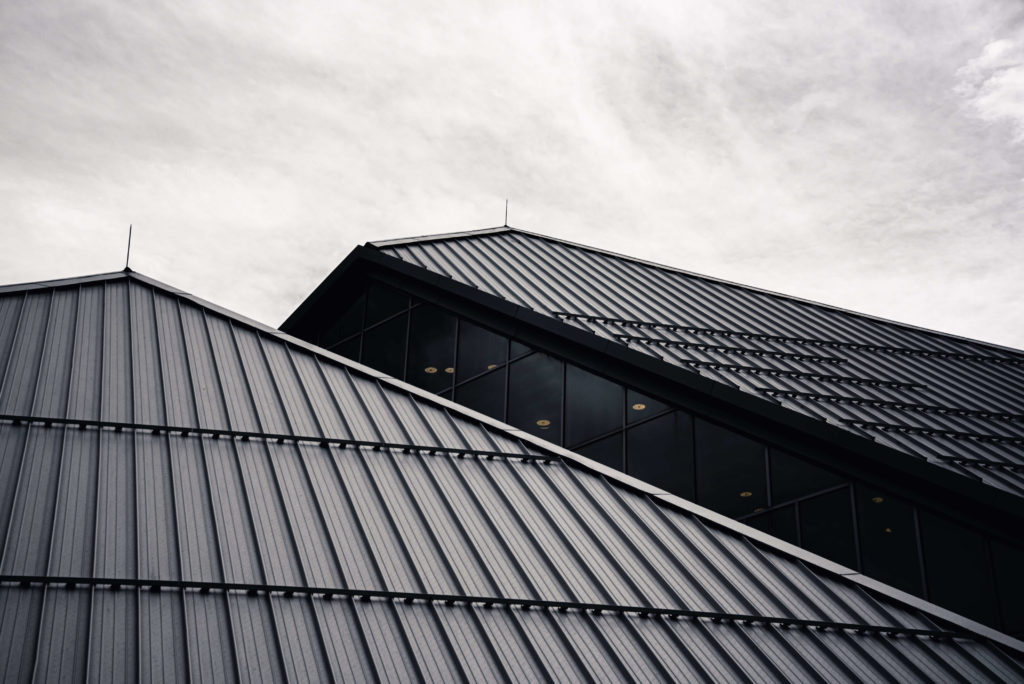
Standing seam metal roofing is a durable system that is made up of long metal panels with vertical seams. The raised seams provide the roof with added strength and durability. One of the key benefits of standing seam metal roofing is its exceptional longevity, with a typical lifespan of 50 years or more. This makes it a popular choice for those looking for a long-term roofing solution.
Pros: Long-lasting, durable, and low-maintenance.
Cons: Expensive and complicated to install.
6. Corrugated Steel
Corrugated steel roofing is characterized by its distinctive wavy pattern and is commonly constructed from galvanized steel, which provides protection against corrosion. This type of roofing is known for its durability and typically lasts anywhere from 30 to 50 years, making it a reliable option for many different types of structures.
Pros: Cost-effective, durable, and strong.
Cons: Not very aesthetically appealing. Can get noisy when it rains.
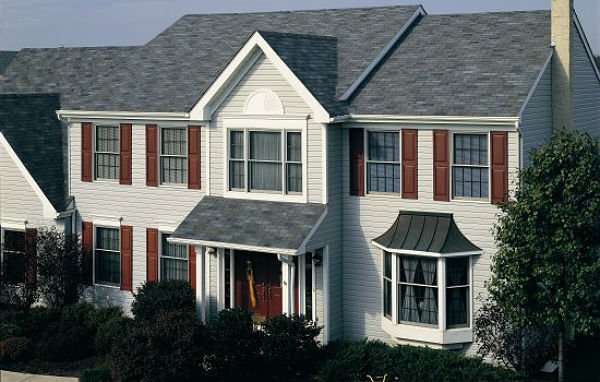
7. Wood Shingles
Wood shingles are commonly crafted from cedar, redwood, or pine due to their natural aesthetic and durability. With regular maintenance, they can endure for 25 to 30 years, making them an excellent long-term roofing option.
Pros: Naturally appealing and insulating.
Cons: High-maintenance. Prone to fire damage.
8. Wood Shake Shingles
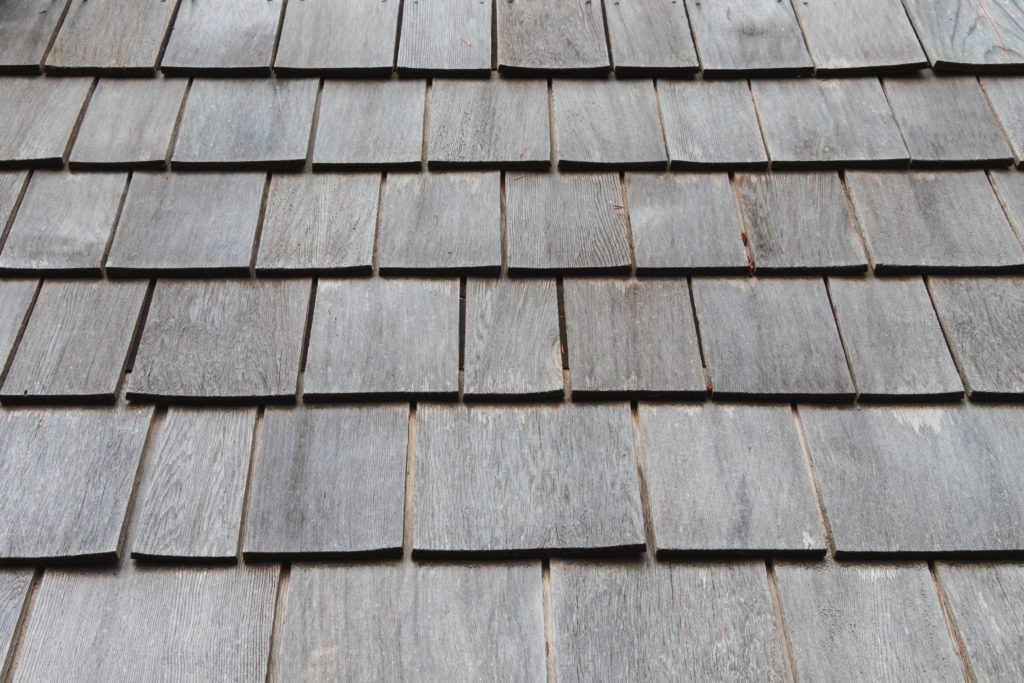
Wood shake shingles are a popular roofing option. Wood shakes are thicker than regular wood shingles and have a more rugged, natural look. They’re typically made from split logs and can last up to 30 years with proper maintenance. The thicker cut of the wood and natural aging process give shakes a unique appearance that many homeowners find appealing.
Pros: Highly insulating, very attractive.
Cons: High maintenance. Prone to insect damage and molding.
9. Clay Tiles
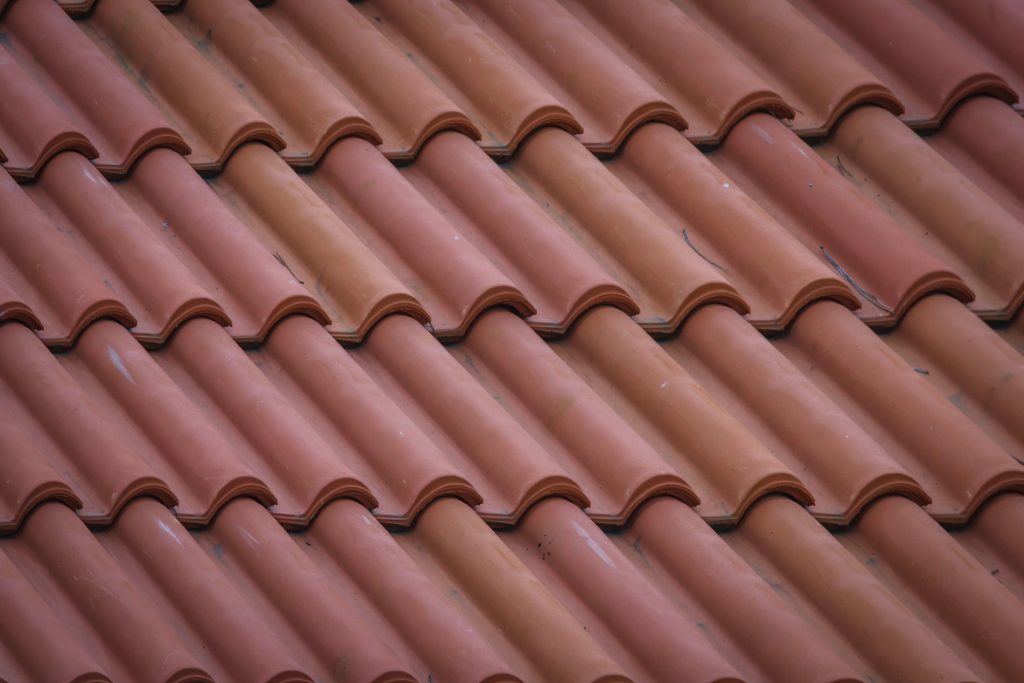
Clay tiles are manufactured from natural clay that is shaped and then fired in a kiln at high temperatures. This process ensures their durability, making them capable of lasting for 50 to 100 years when properly maintained.
Pros: Extremely durable, including fire-resistant.
Cons: Very heavy and expensive.
10. Concrete Tile
Concrete tiles are manufactured from a blend of sand, cement, and water. Due to their durable composition, they have a lifespan of 50 years or more, making them a long-lasting and reliable roofing option.
Pros: Long-lasting and durable, including fire resistant.
Cons: Very heavy and prone to cracking.
11. Slate Tile
Slate tiles are a long-lasting roofing option crafted from natural stone. Known for their exceptional longevity, they often last more than a hundred years.
Pros: Extremely durable and attractive.
Cons: Very expensive. Requires a reinforced roof structure.
12. Impact-Resistant Shingles
Impact-resistant shingles are specifically engineered to endure extreme weather conditions such as hail, heavy rain, and high winds. They’re commonly crafted from durable materials like asphalt or metal and generally last up to 30 years. Their robust construction makes them an excellent choice for safeguarding homes against the elements.
Pros: Weather-resistant and highly durable. May come with insurance discounts.
Cons: Expensive. Limited style options.
13. Composition Shingles
Composition shingles are constructed from a combination of materials such as fiberglass, asphalt, and mineral granules. This combination gives them durability and makes them resistant to various weather conditions. They have a lifespan of 20-30 years, making them a popular choice for roofing materials due to their longevity and cost-effectiveness.
Pros: Affordable and available in many styles and colors.
Cons: Prone to algae growth.
14. Solar Panels
Solar panel shingles are an innovative roofing solution that seamlessly integrates photovoltaic cells into traditional roofing materials. This allows them to generate electricity from sunlight while serving as a protective roofing layer. These shingles are designed to be durable, with a typical lifespan of up to 30 years, making them a sustainable energy solution for homes.
Pros: Eco-friendly. Generates electricity to help reduce electric bills.
Cons: Very expensive and complicated to install.
15. Copper Shingles
Copper shingles provide a unique and elegant aesthetic for roofing and are renowned for their exceptional durability. They often boast a lifespan of over 50 years.
Pros: Uniquely attractive due to the changing patina over time. Very durable.
Cons: Expensive. Requires specialized installation.
16. Rubber Roof Shingles
Rubber shingles are an environmentally friendly roofing option made from recycled materials, typically old rubber tires. Due to their durable nature, they have a lifespan of 30 to 50 years, making them a long-lasting and sustainable choice for roofing materials.
Pros: Eco-friendly, durable, and impact-resistant.
Cons: Limited style options. Can get very expensive.
Choose Long for Your Roofing Needs
The experts at Long Roofing are ready to help you choose the right type of shingle for your home’s new roof. Whatever your personal preferences, needs, or budget, you can count on us to give your home the best roof, installed with efficiency and care.
Contact us today for a free estimate on a stylish and durable new roof for your home.
Interested in Long Home Products?
See our special offers now.
*Excludes labor. Subject to credit approval.
**Excludes labor. Subject to credit approval.
One-day installs contingent upon municipal rules and regulations.
By submitting a form, I authorize Long Home to contact me with information about its products and services via mail, email, phone and/or text at the contact information provided, even if I am on the national do not call list. Long Home may use automated telephone technology to initiate calls to its customers. Calls and in person estimates may be recorded for quality and training purposes.






